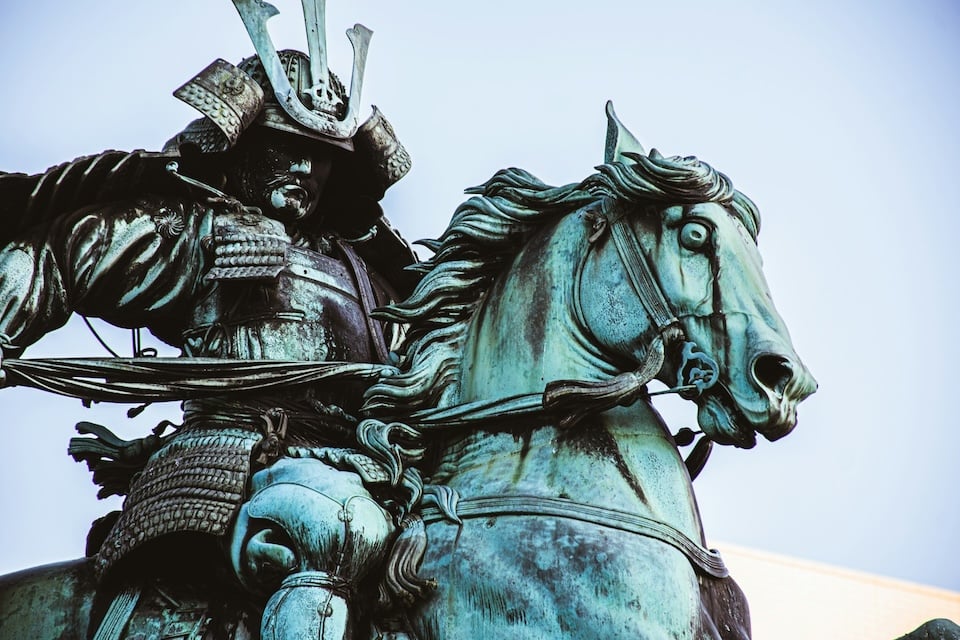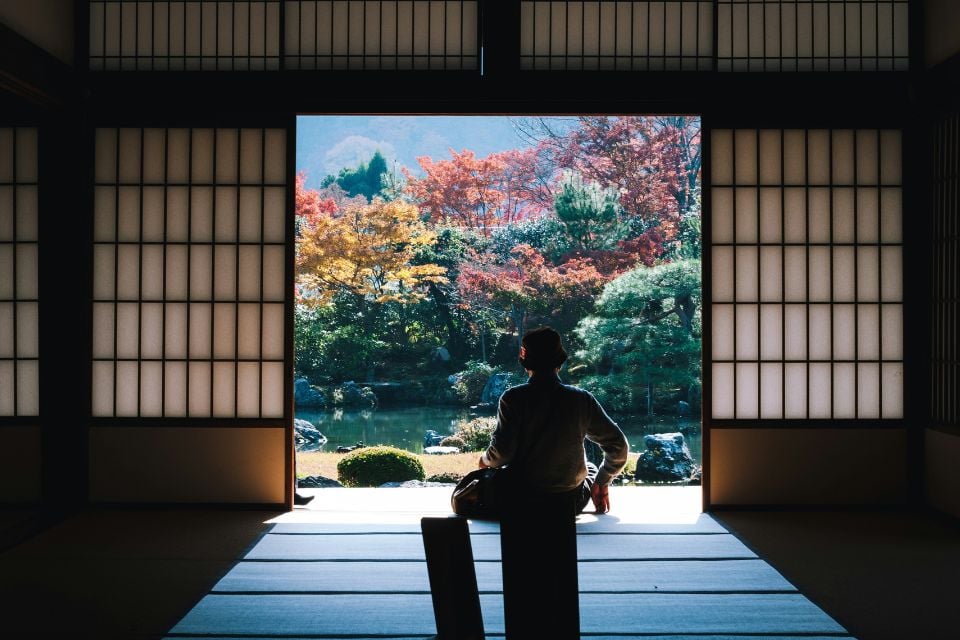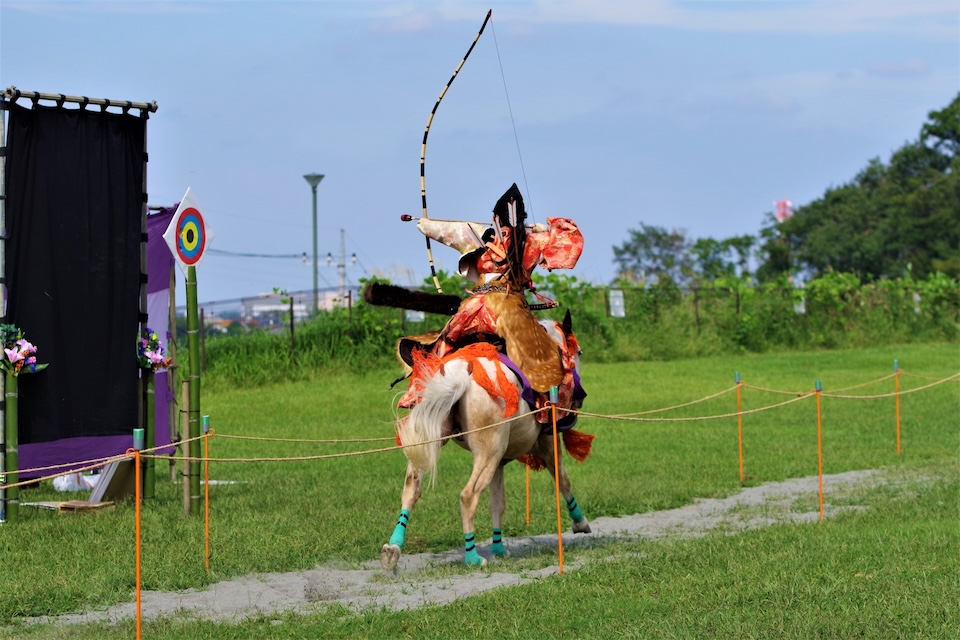

Bushidō (武士道, bushidō) means “the way of the warrior” and reflects the ethical code by which Japan’s samurai lived.
More than combat skills, it’s a philosophy centered on honor, courage, integrity, and compassion. Rooted in Japanese history, the Bushido spirit continues to inspire people worldwide with its timeless values and disciplined way of life.
This article explores its meaning, virtues, and relevance in today’s world.
What Does Bushido Mean? Understanding the Spirit Behind the Word

Bushidō (武士道) combines bushi (“warrior”) and dō (“way”), meaning “the way of the samurai warrior.” It’s more than a code—it’s a deep philosophy shaped by centuries of discipline and belief. While many envision samurai committing seppuku or engaging in battle, Bushido also guided daily behavior, stressing honor, respect, and inner strength.
Rather than a written rulebook, Bushido was passed down through samurai clans, blending Zen Buddhism (serenity), Shintō (loyalty), and Confucianism (morality). Like European chivalry, it combined martial skill with spiritual purpose—encouraging warriors to conquer themselves as much as their enemies.
It’s more than a code—it’s a deep philosophy.
The Origins of Bushido in Japanese Culture
Bushido originated during Japan’s late Heian and early Kamakura periods (12th century), as the samurai class emerged to replace declining court nobles. Early samurai lived by kyūba no michi (弓馬の道), “the way of bow and horse,” reflecting their focus on mounted archery, loyalty, and battlefield skill.
An early mention of Bushidō appears in the Kōyō Gunkan, a 17th-century military chronicle of the Takeda clan, where the term emphasizes bravery and strategy over romanticized ideals. In the war-torn Sengoku era, samurai honor was defined by effectiveness in battle and loyalty to one’s lord—the foundation from which Bushido evolved.
Bushido as a Uniquely Japanese Ethical System
During the peaceful Edo period (1603–1868), Bushido evolved from a warrior’s battlefield code into a refined ethical system. As samurai shifted roles—from soldiers to administrators and scholars—their code emphasized education, dignity, and daily conduct.
What makes Bushido uniquely Japanese is its integration of Confucian loyalty and filial piety, Zen Buddhism’s calm acceptance of death, and Shintō’s reverence for honor and homeland. Unlike European chivalry rooted in Christianity, Bushido focused on honor, loyalty, and the avoidance of shame—core values that continue to shape Japanese society today.
The Evolution of Bushido Through History
Bushido evolved with Japan’s history. In the Sengoku period, it was pragmatic—centered on loyalty and winning battles. By the peaceful Edo era, it became a refined moral code, stressing ethics, education, and inner discipline. Texts like Hagakure taught readiness for death as a path to fearless living.
After the Meiji Restoration (1868) ended the samurai class, Bushido was revived as a national ethic. Though later misused during wartime, its core values endured. Today, Bushido lives on in modern Japan—in business, education, and martial arts—as a quiet guide to integrity and honor.
The Code of Bushido: Eight Virtues That Define the Samurai Spirit

Bushido, the way of the warrior, was built around eight core virtues:
- Gi (Integrity): Doing what is right, even when it’s difficult.
- Yū (Courage): Facing fear and adversity with strength and resolve.
- Jin (Compassion): Showing kindness and empathy to others.
- Rei (Respect): Treating everyone with dignity and humility.
- Makoto (Honesty): Being sincere and truthful in word and deed.
- Meiyo (Honor): Upholding your personal and social reputation.
- Chūgi (Loyalty): Staying devoted to people, causes, and values.
- Jisei (Self-Control): Mastering your impulses and staying disciplined.
These virtues served as a moral compass for samurai—and they still resonate today.
Rectitude (Gi) and Courage (Yū)
Rectitude (Gi), often translated as righteousness or justice, was considered the highest virtue in Bushido. It served as a moral compass for samurai, guiding them to act rightly even when it was difficult or against personal interest. Upholding justice, even over loyalty to family, was expected. One story tells of a young samurai reporting his corrupt superior despite personal risk—because integrity demanded it. Gi is the inner voice that says: “Do the right thing.”
Courage (Yū) complements rectitude. It’s the strength to act on what’s right. Bushido valued not reckless bravery, but intelligent, principled courage. It took courage not just to fight, but to speak difficult truths or own one’s mistakes. As Bushido says, “A timid person can never achieve honor.” Real courage means acting boldly when a cause is just—even in daily life, like standing up for others or facing hard choices with resolve.
Benevolence (Jin) and Respect (Rei)
Benevolence (Jin) is the virtue that softens the samurai’s strength. Samurai were powerful figures, and Bushido taught that this power must be used to protect the weak. Jin meant showing mercy and compassion, whether by helping a struggling farmer or aiding war orphans. Many samurai codes stated that “the strong must guard the weak,” and legends often featured warriors defending villagers. This ideal lives on in Japan’s culture of mutual support, especially during disasters.
Respect (Rei) was equally important. For the samurai, showing courtesy reflected inner dignity and maintained harmony. In feudal Japan, respectful behavior—how one bowed, spoke, or sat—was a moral act, not just social etiquette. Even in victory, a samurai was expected to honor their opponent. Disrespect, arrogance, or rudeness were signs of weakness. Today, this legacy is seen in the politeness of Japanese culture, where everyday gestures like bows and apologies carry deep meaning rooted in Bushido.
Honesty (Makoto) and Honor (Meiyō)
Honesty (Makoto) in Bushido meant more than not lying—it demanded absolute sincerity. A samurai’s word was considered as binding as action. To speak falsely or break a promise was a deep dishonor. Samurai were expected to act with integrity in all matters, from loyalty to lords to fair dealings with commoners. This legacy of truthfulness still echoes in Japanese society today, where honesty and public trust remain highly valued.
Honor (Meiyō) was the foundation of a samurai’s identity. It meant living in a way that upheld dignity and moral worth. Losing honor could be worse than death—hence, the practice of seppuku to reclaim it. Samurai constantly asked themselves whether their actions would bring shame or pride. Today, Japan’s strong cultural emphasis on responsibility and avoiding disgrace can be traced back to Bushido’s reverence for personal honor.
Loyalty (Chūgi) and Self-Control (Jisei)
Loyalty (Chūgi) was the heart of Bushido. A samurai’s bond with his lord was sacred, often demanding total devotion—even death. The famous 47 Rōnin showed this by avenging their master despite knowing it would cost them their lives. Loyalty also extended to family and community, emphasizing duty, trust, and the deep shame of betrayal. This value continues in modern Japan’s strong sense of group responsibility and long-term commitment, especially in workplaces.
Self-Control (Jisei) was the foundation that held all virtues together. A samurai was expected to remain calm under pressure, endure hardship without complaint (gaman), and avoid indulgence. Training in Zen or martial arts helped nurture this discipline. Whether in emotions, speech, or lifestyle, self-mastery ensured the samurai lived with dignity. Even today, Japan’s cultural restraint and public composure reflect this lasting influence.
Bushido and the Way of the Samurai

Bushido guided every aspect of a samurai’s life—from training and duties to manners and moral choices. “Samurai” originally meant “one who serves,” referring to elite warriors under noble lords.
While they mastered martial arts (budō), it was Bushido that shaped their ethics. In peaceful times, samurai became officials and role models, expected to lead with fairness, modesty, and virtue.
How Bushido Shaped the Samurai Lifestyle
Bushido shaped every aspect of a samurai’s life. Education blended martial arts with ethics and literature, creating warriors of both strength and character. Daily conduct—from dress to speech—reflected discipline and dignity, even in hardship.
The sword symbolized the samurai’s spirit, meant to be drawn only with purpose. At home, Bushido encouraged frugality and integrity. Whether in battle or daily life, the code guided samurai to live with honor and self-control.
The Difference Between Samurai, Ronin, and Bushido
A samurai was a warrior who served a lord and followed Bushido, the samurai code of honor. If a samurai lost his master—through death, disgrace, or dismissal—he became a rōnin (“wave man”), a masterless samurai without rank or income.
Bushido applied to both roles. The true test was whether a rōnin still lived by its values—loyalty, justice, and honor—even without a master. The famous 47 Rōnin are celebrated in Japan for secretly planning and carrying out revenge on behalf of their deceased lord, then accepting death to preserve their honor.
In short, samurai and rōnin describe roles; Bushido is the moral code. Today, when people mention the “samurai spirit,” they often mean anyone who lives with discipline, courage, and integrity—the heart of Bushido.
Bushido’s Influence on Martial Arts
Bushido deeply shaped Japanese martial arts (budō), emphasizing moral character over mere technique. Arts like kendō, judo, and karate evolved not just as combat skills but as paths to self-discipline and integrity.
For example, kendō teaches respect and calmness through rituals like bowing and controlled behavior. Judo founder Kanō Jigorō emphasized values like mutual welfare, reflecting Bushido’s ethics. Even karate schools follow dōjō kun codes that echo Bushido virtues—sincerity, effort, self-control.
Traditional dojos stress humility, respect for teachers (Sensei), and cleaning the training space—instilling discipline beyond physical skills. Globally, Bushido’s “warrior’s code” continues to inspire martial artists who seek both strength and virtue.
The Spiritual Foundations of Bushido

Bushido is not a religion, but a spiritual code rooted in Japan’s major traditions. It weaves together Zen, Confucianism, and Shintō—each shaping values like duty, discipline, and honor. These influences gave samurai a deeper purpose, guiding how they lived—and died—with meaning.
Zen Buddhism and Confucian Influences
Zen Buddhism shaped the inner world of the samurai. Through meditation (zazen) and concepts like mushin (no-mind), warriors learned to stay calm, accept death, and act without hesitation. Zen also influenced aesthetics—simplicity, impermanence, and mindful living.
Confucianism, meanwhile, grounded Bushido in ethics and social order. Its core values—loyalty, filial piety, and benevolence—aligned with Bushido’s emphasis on duty to lord and family. Samurai were expected to be both loyal retainers and moral role models. Together, Zen and Confucianism made Bushido a path of spiritual discipline and ethical action.
The Role of Shame, Duty, and Self-Discipline
Bushido emphasized internal shame (haji) as a moral compass—samurai were expected to act honorably even when unobserved. A misdeed, however small, was a stain on one’s soul. Duty (giri) was equally crucial: loyalty to one’s lord, family, and obligations came before personal feelings. Tragic stories, like Kumagai’s execution of a youth in The Tale of the Heike, show how painful duty could be.
To uphold both shame and duty, self-discipline was essential. Samurai trained their bodies and minds to endure hardship and temptation. This internalized code led to honor-driven behavior without external enforcement—a legacy that still influences Japanese values like perseverance (ganbari) and not burdening others (meiwaku).
Bushido and the Samurai’s View on Death
Bushido teaches that accepting death frees a warrior to act with courage and integrity. As the Hagakure says, “The way of the warrior is death”—not a call to die, but to live without fear. Seppuku was a way to preserve honor in failure, and acts like junshi showed deep loyalty.
This mindset gave samurai boldness in battle, choosing honor over life. In modern times, we see echoes of this in people who risk themselves for others, like Fukushima’s plant workers. Bushido reminds us: live so you have no regrets when the end comes.
Bushido in Stories: Films and Series That Capture the Samurai Spirit

The mystique of Bushido and the samurai has fascinated global audiences through films, series, and anime. These stories dramatize core Bushido values—honor, loyalty, sacrifice—and often serve as a gateway for people to explore the samurai spirit, whether in romanticized or critical form. Let’s look at key examples that bring these ideals to life on screen.
The Last Samurai (2003) – An accessible entry point through a Western lens
The Last Samurai (2003), starring Tom Cruise, introduced Bushido ideals to Western audiences through the eyes of an American officer who lives among samurai rebels in 1870s Japan. Led by Lord Katsumoto (Ken Watanabe), the samurai resist Westernization, living by honor, discipline, and loyalty.
The film contrasts the spiritual depth of samurai life with modern Tokyo’s political corruption. In training scenes and the final charge against firearms, Bushido’s values—especially courage and the resolve to face death with dignity—are powerfully portrayed. While fictionalized, it captures the essence of Bushido: to live and die with honor. Cruise’s character’s transformation shows how universal these virtues can be, making Bushido accessible to global audiences.
Love and Honor (2006) – A human drama of pride, honor, and quiet resolve
Love and Honor (Bushi no Ichibun), directed by Yōji Yamada, offers an intimate portrayal of Bushido in everyday life. The story follows Shinnojō, a low-ranking samurai who loses his eyesight after being poisoned while serving as a food taster. Struggling with a loss of purpose and dignity, he learns that his wife was coerced by a higher official during his illness. Though blind, Shinnojō resolves to confront the man and reclaim their honor.
The film highlights Bushido’s virtues—loyalty, perseverance, and respect—within a domestic setting. Shinnojō’s quiet determination to train and fight, despite his blindness, reflects true samurai spirit. The climactic duel is less about action and more about restoring pride and love. Unlike grand epics, Love and Honor shows that Bushido also means living with dignity and moral resolve, not just dramatic death.atic death.
Harakiri (1962) – A critical look at the conflict between true and false Bushido
Harakiri (Seppuku), directed by Masaki Kobayashi, offers a powerful critique of how Bushido can be misused to uphold hypocrisy. The story follows Tsugumo Hanshirō, a rōnin who requests to commit seppuku at a clan estate. This clan, strictly following the code, had previously forced a young rōnin—Hanshirō’s relation—to kill himself with a bamboo sword, as he had pawned his blade to care for his sick family.
As Hanshirō tells his story, the film reveals the gap between Bushido ideals and real compassion. The clan’s officials preach duty and honor, but Hanshirō exposes their cowardice and obsession with appearances. In a symbolic act, he presents the topknots of samurai who had tried to avoid dueling him—humiliating proof of their hypocrisy.
Though Hanshirō is eventually killed, the clan scrambles to cover up the truth, choosing reputation over justice. Harakiri challenges viewers to ask whether true honor lies in rigid codes—or in the courage to act with integrity and compassion.
Shōgun (2024 series) – Immersive storytelling for modern international audiences
Shōgun (2024) reimagines James Clavell’s novel with rich depictions of Bushido and samurai life through the eyes of English navigator John Blackthorne. Shipwrecked in Japan, he’s drawn into the power struggle of Lord Toranaga, a cunning daimyo aiming to become shōgun.
Blackthorne, initially baffled by customs like seppuku, gradually respects the samurai code. Characters like Lady Mariko exemplify Bushido through loyalty and duty, while Toranaga shows how honor and strategy coexist. The series highlights how Bushido shaped everyday actions and offers modern viewers a deeper appreciation of its values.
Gintama – A comedic yet meaningful interpretation of Samurai values for younger viewers
Gintama is a comedic anime set in an alternate Edo era where aliens rule and swords are banned. Its protagonist, Gintoki Sakata, is a candy-loving, lazy ex-samurai who, beneath the humor, lives by a personal code resembling Bushido. Though unconventional, Gintoki embodies loyalty, courage, and righteousness—protecting friends and refusing to kill due to past trauma.
The show parodies samurai tropes but also honors them. Characters like Katsura fight for samurai ideals against alien rule, while the Shinsengumi balance duty and personal conviction, often echoing Bushido’s moral dilemmas. Even with its absurd tone, Gintama uses humor to deliver sincere messages about honor, friendship, and doing what’s right—making Bushido accessible and relevant to younger viewers in a modern world.
How These Stories Reflect Core Bushido Values Like Loyalty, Honor, and Self-Sacrifice
Across these stories, Bushido values—loyalty, honor, and self-sacrifice—are vividly portrayed. Whether in The Last Samurai’s battlefield, Harakiri’s moral reckoning, or Love and Honor’s quiet resilience, characters embody these ideals under pressure.
Shōgun and Gintama show how Bushido adapts across cultures and genres, from solemn drama to comedic rebellion. Loyalty to friends, personal honor, and the courage to sacrifice remain central, even in futuristic or fictional settings.
These narratives translate abstract virtues into human moments. Through their choices, losses, and resolve, we glimpse the enduring power of the samurai spirit—still inspiring, no matter the era or form.
Bushido in Literature and Modern Culture

Bushido’s influence goes far beyond samurai tales. It has been explored in literature, academic studies, and remains embedded in modern culture in Japan and beyond. From a 1900 bestseller that first introduced it to the West, to its presence in manga and business ethics, the samurai code continues to leave a lasting impact.
Here are a few key areas where its legacy lives on: modern culture in Japan and beyond.
Nitobe Inazō’s “Bushido: The Soul of Japan”
One of the most influential works to define Bushido for Western audiences is Bushido: The Soul of Japan (1900) by Nitobe Inazō, a diplomat and educator. Written in English, it explained samurai ethics by comparing Bushido’s virtues—like rectitude, courage, benevolence, respect, honesty, honor, and loyalty—to Western concepts such as Christian morality and chivalry. Nitobe portrayed Bushido as Japan’s moral framework, especially important at a time when Japan sought recognition on the global stage.
The book had a major impact abroad, read by figures like Theodore Roosevelt, and shaped how the West viewed samurai culture. Though later criticized by Japanese scholars as romanticized or selective, Nitobe’s work helped popularize the term “Bushido” and codified its values for international audiences. Even today, his version of Bushido continues to influence how the samurai spirit is understood both in Japan and worldwide.
Bushido in Manga, Anime, and Popular Media
Bushido’s values—honor, loyalty, and courage—permeate Japanese pop culture, especially in globally influential manga, anime, and video games. Titles like Rurouni Kenshin, Naruto, and One Piece portray characters who live by personal codes echoing samurai ideals. Even if not directly about samurai, these stories emphasize loyalty, self-sacrifice, and justice, often through compelling action and emotional growth.
Video games like Ghost of Tsushima let players experience Bushido dilemmas firsthand. In sports and business, phrases like “samurai spirit” reflect discipline and perseverance. Globally, Bushido is evoked in media like Star Wars, fashion, and branding, symbolizing timeless principles that inspire beyond their historical roots.
How Bushido Lives On in Modern Japan
Though the age of samurai is gone, Bushido lives on in Japan’s culture. Loyalty in the workplace, discipline in schools, and group harmony in daily life all reflect its spirit.
Acts like returning lost items or staying calm in disasters show values like honesty, self-restraint, and duty. Martial arts and traditional arts teach respect, humility, and inner discipline—echoes of the samurai code.
Japan’s famous hospitality (omotenashi) and pride in service also mirror Bushido ideals. Even abroad, gestures like teams cleaning locker rooms show this quiet strength.
Through these behaviors, Bushido continues to shape Japan’s national character today.
What We Can Learn From Bushido Today

Bushido may have emerged in a different era, but its values remain relevant today. In a world of rapid change and uncertainty, its virtues offer a steady guide for how to live with integrity. From work to relationships to self-growth, Bushido’s principles can help us navigate life with purpose.
Let’s explore how these timeless ideals apply to modern life, transcend age and gender, and resonate as a global code of respect and discipline.
Applying Bushido to Daily Life and Work Ethic
Bushido’s values remain surprisingly relevant in modern times. Here’s how we can live them today:
- Integrity: Be honest at work and true to your values in daily life.
- Courage: Speak up for what’s right or pursue your goals despite fear.
- Compassion & Respect: Support others and treat everyone equally.
- Honesty: Follow through on promises and be clear in communication.
- Honor: Make decisions you can be proud of—even when no one sees.
- Loyalty: Be dependable to your friends, teams, and greater good.
- Self-Control: Stay focused, manage emotions, and act with purpose.
You don’t need a sword to live like a samurai. A Bushido mindset helps anyone—regardless of background—live with purpose, integrity, and inner strength.
Bushido Beyond Gender and Age
Bushido’s core values—like courage, integrity, and compassion—aren’t bound by gender, age, or culture. Historically, women in samurai households followed their own warrior-like path, embodying loyalty and resilience. Today, we see that same spirit in mothers, CEOs, and changemakers.
Young people can use Bushido as a moral compass—standing up to bullying, staying disciplined in sports, or staying true to their friends. For older generations, it offers dignity, purpose, and a guiding light in how they give back to society.
You don’t have to be Japanese—or a samurai—to live by these values. Around the world, people in schools, activism, business, and daily life show samurai spirit through action. Bushido, in essence, is a timeless and universal guide for living with honor, courage, and compassion.
A Global Philosophy of Integrity and Respect
Though rooted in Japan’s samurai tradition, Bushido offers timeless values—integrity, courage, compassion, and loyalty—that resonate globally. These virtues echo ethical systems across cultures, from Confucianism and Islam to medieval chivalry.
Today, Bushido appears in leadership training, diplomacy, martial arts, and business ethics worldwide. Its samurai ideals help foster cross-cultural understanding and provide a moral framework grounded in honor and responsibility.
By applying Bushido’s spirit—living with principle, self-discipline, and respect—people everywhere can strive for personal excellence and a more just society. In an age of division, the samurai path reminds us that noble character knows no borders.
MOTENAS JAPAN’s Samurai Experiences

Interested in discovering more about the samurai spirit or even experiencing it firsthand? MOTENAS JAPAN offers curated samurai-related cultural experiences and content. From guided tours that delve into Japan’s martial heritage to hands-on workshops (like learning samurai etiquette or swordsmanship basics), MOTENAS JAPAN helps you connect with the legacy of Bushido in an engaging, authentic way.
It’s a wonderful resource for those who wish to walk the path of the samurai, even if just for a day, and gain deeper insight into how these ancient values continue to shape Japanese culture. Embracing the samurai spirit through such experiences can enrich your trip to Japan – or even inspire your everyday life – with a touch of that timeless honor and elegance unique to the way of Bushido.
Bushido as a Guide for Life

Bushido, the samurai code, lives on as a guide for modern life. Its core values—honor, courage, loyalty, compassion—transcend time and culture. In a world full of change, these principles offer clarity and strength.
You don’t need a sword to live like a samurai. Anyone who chooses honesty, kindness, and bravery follows the spirit of Bushido. From healthcare workers to everyday heroes, its legacy continues in quiet acts of integrity.
In the end, Bushido reminds us: true strength lies not in power, but in character.

旅をこよなく愛するWebライター。アジアを中心に16の国にお邪魔しました(今後も更新予定)。
ワーホリを機にニュージーランドに数年滞在。帰国後は日本の魅力にとりつかれ、各地のホテルで勤務。
日本滞在が、より豊かで思い出深いものになるように、旅好きならではの視点で心を込めてお届けします!





